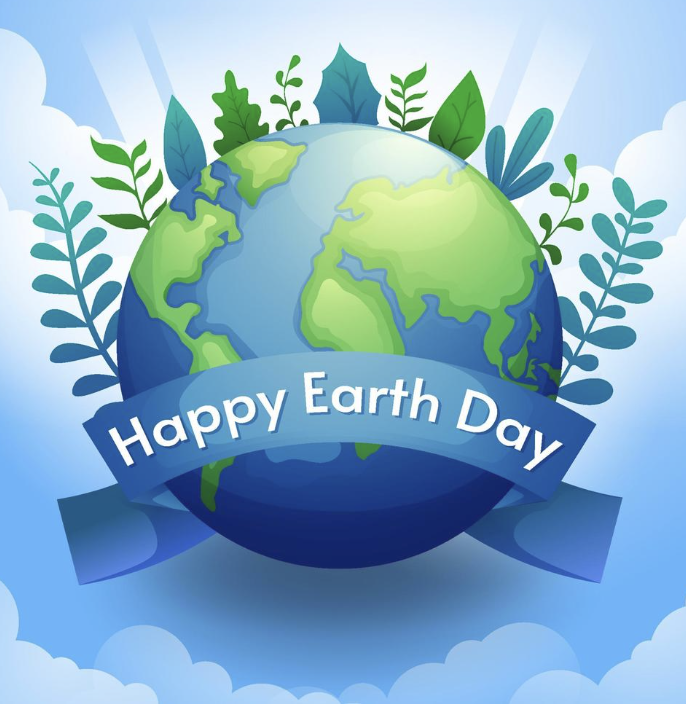Earth Day is often talked about in schools because it provides an excellent opportunity to educate students about environmental awareness, conservation, and sustainability.
Here are a few reasons why Earth Day is emphasized in educational settings:
- Environmental Education: Earth Day serves as a focal point for teaching students about the importance of taking care of the planet. It introduces concepts such as reducing waste, conserving resources, and protecting ecosystems.
- Global Awareness: Earth Day is a global event, making it a great way for students to learn about environmental issues on a worldwide scale. It helps them understand that environmental challenges affect everyone, regardless of where they live.
- Hands-On Learning: Many Earth Day activities involve hands-on learning experiences, such as planting trees, recycling projects, or cleaning up local parks. These activities not only teach environmental principles but also instill a sense of responsibility and stewardship in students.
- Interdisciplinary Connections: Earth Day connects to various subjects such as science, geography, social studies, and even art and literature. It provides opportunities for interdisciplinary learning and encourages students to see the interconnectedness of different areas of knowledge.
- Promoting Action: Earth Day often inspires students to take action in their communities, whether it's advocating for environmental policies, participating in clean-up efforts, or implementing sustainability practices in their schools.
Overall, Earth Day in schools is about fostering environmental consciousness, empowering students to become responsible global citizens, and encouraging positive actions to protect our planet.

Earth Day 2024 is likely to involve a range of activities focused on environmental awareness and conservation.
Here are some common plans and activities that people and organizations often engage in for Earth Day:
- Community Cleanups: Many communities organize cleanup events where volunteers gather to clean up parks, beaches, rivers, and other natural areas. This not only helps the environment but also raises awareness about the importance of keeping our surroundings clean.
- Tree Planting: Tree planting events are popular on Earth Day. Trees play a crucial role in mitigating climate change by absorbing carbon dioxide from the atmosphere, so planting trees is a meaningful way to contribute to environmental sustainability.
- Educational Workshops and Seminars: Schools, universities, and environmental organizations often host workshops and seminars to educate people about environmental issues such as climate change, biodiversity loss, sustainable living practices, and renewable energy.
- Awareness Campaigns: Earth Day is an opportunity for advocacy and raising awareness about environmental issues. This can include social media campaigns, public events, and educational materials to inform people about ways they can contribute to a healthier planet.
- Recycling and Waste Reduction Initiatives: Encouraging recycling, reducing waste, and promoting sustainable practices such as composting are common themes for Earth Day initiatives. Businesses and communities may organize special recycling drives or educational programs focused on waste reduction.
- Nature Walks and Outdoor Activities: Many parks and nature reserves offer guided nature walks or outdoor activities on Earth Day, allowing people to connect with nature and appreciate the importance of preserving natural habitats.
- Policy Advocacy: Earth Day also serves as a platform for advocating for environmental policies and regulations that promote conservation, renewable energy, and sustainability at local, national, and global levels.
These activities are not only for Earth Day but can also serve as ongoing efforts to protect and preserve the environment throughout the year.
Celebrating Earth Day can be a wonderful way to show appreciation for our planet and take action for environmental conservation.
Here are some ideas for what individuals can do:
- Reduce, Reuse, Recycle: Practice the 3 R's in your daily life. Reduce waste by using reusable items, recycle materials like paper, plastic, and glass, and find ways to repurpose or donate items instead of throwing them away.
- Conserve Energy: Turn off lights and electronics when not in use, use energy-efficient appliances, and consider renewable energy options like solar panels if feasible.
- Plant Trees: Trees play a crucial role in reducing carbon dioxide in the atmosphere. Plant trees in your yard or participate in tree-planting events in your community.
- Reduce Water Usage: Fix leaks, take shorter showers, and use water-saving devices like low-flow toilets and faucets to conserve water.
- Support Sustainable Practices: Choose products with minimal packaging, opt for organic and locally grown food when possible, and support companies and organizations that prioritize sustainability.
- Educate Others: Share information about environmental issues with friends, family, and your community. Encourage others to take action and make environmentally friendly choices.
- Clean Up Litter: Organize or participate in a local clean-up event to remove litter and debris from parks, beaches, and other public spaces.
- Go Green in Transportation: Use public transportation, carpool, bike, or walk instead of driving alone. Consider switching to a fuel-efficient or electric vehicle if feasible.
- Support Conservation Efforts: Donate to or volunteer with organizations dedicated to environmental conservation and protection.
- Celebrate Nature: Spend time outdoors appreciating the beauty of nature. Visit parks, go hiking, or have a picnic in a natural setting.
Which of these ideas resonate with you?
Here is a free word search for you to enjoy.
How will you celebrate Earth Day? Comment below.



Comments ()